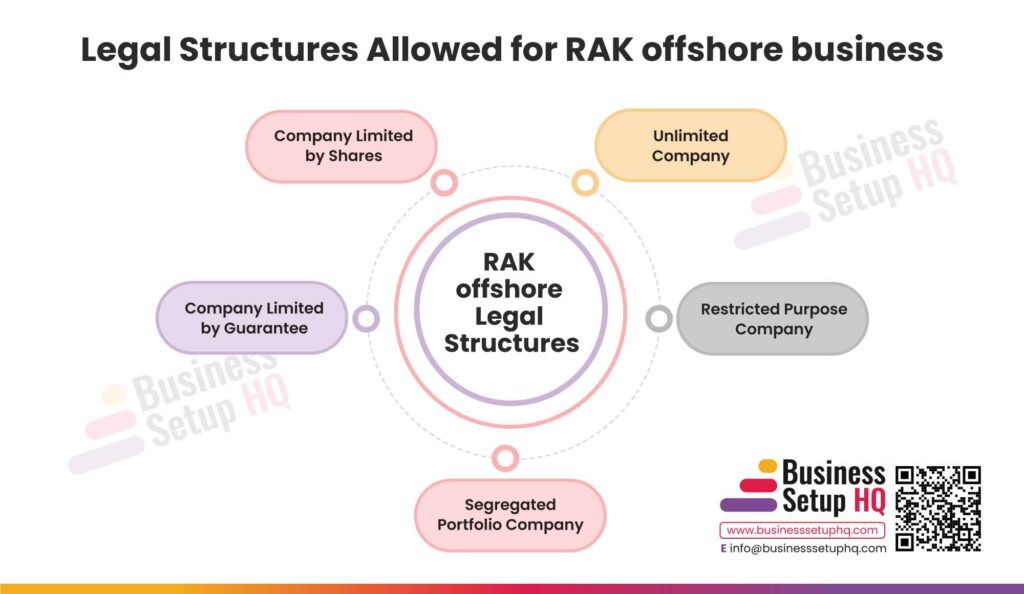Simplify Your Business Strategy with Offshore Company Formation
Simplify Your Business Strategy with Offshore Company Formation
Blog Article
Browsing the World of International Organization: Insights on Offshore Company Formation
Offshore Company Formation offers a tactical method for international company operations. It supplies significant benefits, such as tax obligation optimization and improved personal privacy. The process is not without its difficulties. Understanding the complexities of various jurisdictions and regulatory demands is crucial. As services consider these alternatives, the actions involved can greatly impact their long-lasting success. What are the crucial factors that can lead to efficient offshore monitoring?
Understanding Offshore Firms: Definition and Purpose
Offshore firms have actually become a prime focus in worldwide organization conversations as a result of their one-of-a-kind lawful and economic structures. These entities are developed in jurisdictions beyond the proprietor's nation of home, usually with positive regulatory environments. Typically, offshore firms serve numerous purposes, such as possession protection, tax obligation optimization, and enhanced personal privacy. They can operate in multiple industries including trade, technology, and financing, providing adaptability for international operations.The specifying attribute of an offshore Company is its capacity to carry out service internationally while taking advantage of lowered tax obligation obligations and regulative worries. This framework allures to entrepreneurs and financiers seeking to diversify their profiles and manage dangers properly. Additionally, many overseas territories supply incentives to bring in international investment, causing a boost in the Formation of these business. Comprehending the definition and function of offshore companies is crucial for navigating with the intricacies of international commerce and funding flow.
Secret Advantages of Offshore Company Formation
The Formation of an overseas Company provides a number of engaging advantages that bring in financiers and business owners alike. One of the primary benefits is tax obligation optimization; numerous territories give positive tax obligation rates or exemptions, permitting businesses to make the most of earnings. Furthermore, offshore firms frequently appreciate better privacy, as many territories have stringent privacy laws securing the identities of Company proprietors and shareholders.Another considerable benefit is property security. Offshore entities can protect properties from political instability and financial downturns in the proprietor's home nation. Additionally, these companies can assist in worldwide trade, providing easy access to global markets and streamlining cross-border transactions.The versatility in corporate structure additionally interest company owners, as overseas companies can be customized to fulfill specific functional demands. On the whole, the calculated Formation of an offshore Company can bring about enhanced monetary safety and security, operational performance, and a robust international existence.

Common Challenges in Developing Offshore Entities
Developing overseas entities provides numerous difficulties that businesses must navigate. Secret issues consist of regulative compliance, which can vary considerably across territories, and the effect of cultural differences on operations. Additionally, organizations have to consider the expenses and risks associated with preserving an offshore visibility, which can impact general feasibility.
Regulative Conformity Issues
When they seek to establish offshore entities, maneuvering regulatory conformity problems postures significant challenges for businesses. Each jurisdiction has its own collection of laws and guidelines, which can differ commonly and may be tough to navigate. Business typically face challenges pertaining to tax obligation conformity, anti-money laundering laws, and reporting demands. Furthermore, modifications in international tax obligation laws can create unpredictability, making it important for organizations to stay upgraded on conformity obligations. Failing to stick to these regulations can result in extreme fines, including fines and reputational damages. Involving and comprehending the legal structure with regional professionals is essential for effective offshore operations, ensuring that organizations can run within the confines of the law while enhancing their international approach.
Social Distinctions Effect

Expense Factors To Consider and Risks
Steering through the financial landscape of offshore entity Formation provides different price factors to consider and intrinsic dangers. Initial arrangement costs often consist of lawful fees, registration expenses, and compliance charges, which can build up significantly. Additionally, recurring maintenance expenses such as annual charges and audit services have to be factored in. Rising and fall regulative environments in different territories position risks, possibly leading to unanticipated prices or lawful difficulties. Companies may additionally run into difficulties connected to taxation, financial, and reputational problems, which can affect profitability and functional effectiveness. Potential entrepreneurs must carry out detailed due diligence and monetary forecasting to mitigate these risks and guarantee sustainable development. Comprehending these price factors to consider is crucial for effective overseas service endeavors.
Actions to Establish Up an Offshore Company
Establishing an offshore Company involves numerous important steps that require mindful consideration. Secret variables consist of guaranteeing and choosing the proper territory conformity with regional policies, along with gathering needed documentation. Comprehending these components is essential for a successful overseas organization configuration.
Choosing the Right Territory
Choosing the appropriate territory is critical for anyone looking to establish up an overseas Company, as it can significantly affect the service's legal commitments, tax obligations, and functional convenience. Different variables need to be taken into consideration, including the political security, governing atmosphere, and tax obligation motivations used by prospective territories. Popular selections commonly consist of countries with favorable tax routines, such as the British Virgin Islands or Cayman Islands, because of their low or no tax obligation rates. Furthermore, the convenience of doing organization and the online reputation of the jurisdiction can affect investor self-confidence and market access. Eventually, an educated decision based on thorough study will certainly ensure the overseas Company is positioned for long-lasting success and conformity with worldwide requirements.
Called For Documents and Conformity
When setting up an offshore Company, understanding the essential documentation and compliance requirements is necessary to guarantee a smooth process. Trick files commonly consist of a certificate of incorporation, a memorandum and posts of association, and proof of identity for supervisors and shareholders. Some jurisdictions may call for additional info, such as business plans or bank recommendations. Compliance with regional laws is vital, which frequently entails designating a signed up agent and keeping an authorized workplace. Normal coverage and adherence to tax obligation commitments must additionally be thought about. Failing to adhere to these requirements can result in penalties and even dissolution of the Company. Detailed prep work and examination with legal professionals can aid navigate these complexities effectively.
Picking the Right Jurisdiction for Your Offshore Company
How can one identify the most ideal territory for an offshore Company? Choosing the best jurisdiction requires mindful consideration of multiple elements. Initially, the lawful and tax atmosphere plays an essential function; jurisdictions with desirable tax regimes might improve business profitability. In addition, the political security and economic climate of an area can impact long-term organization viability.Another vital element is the schedule of monetary solutions and banking framework, which assist in smooth operations. Potential local business owner should also think about the ease of working, including the rate of enrollment and the clarity of regulations.Furthermore, language obstacles and social distinctions can influence procedures; as a result, straightening with a territory that lines up with business objectives and individual convenience is vital. Eventually, detailed research study and specialist guidance can direct entrepreneurs in making a notified choice that straightens with their tactical objectives.
Compliance and Regulative Considerations

Ideal Practices for Taking Care Of an Offshore Business
Managing an overseas organization calls for critical preparation and precise implementation to maximize efficiency and reduce threats. Developing a durable conformity framework is necessary to navigate differing policies across jurisdictions. Regular audits and danger assessments help recognize prospective vulnerabilities.Moreover, leveraging regional proficiency with collaborations with regional professionals can enhance functional effectiveness and social understanding. Making use of technology, such as cloud-based management systems, simplifies communication and data monitoring, making it possible for better decision-making. Furthermore, preserving transparent financial documents and making certain prompt tax obligation filings are important to maintain the Company's stability. Buying staff training and growth promotes a skilled workforce, promoting advancement and adaptability.Finally, developing clear efficiency metrics and essential efficiency signs (KPIs) helps analyze company development and educate strategic adjustments. By adhering to these ideal techniques, firms can properly manage their overseas operations, making sure long-term success and sustainability in an affordable worldwide market.
Often Asked Inquiries
What Is the Expense of Forming an Offshore Company?
The expense of forming an offshore Company differs extensively depending upon jurisdiction, lawful requirements, and services required. Usually, expenses can vary from a few hundred to a number of thousand bucks, consisting of registration, compliance, and annual fees.
How much time Does It Require To Develop an Offshore Entity?
The time called for to develop an offshore entity varies considerably, typically ranging from a few days to a number of weeks (offshore company formation). Factors affecting this duration include jurisdiction, needed documents, and the performance of the provider involved
Can Individuals Type Offshore Companies Without a Service Partner?
People can without a doubt create offshore firms without a company partner. Several territories allow single-member entities, encouraging business owners to establish and manage their services separately, while still profiting from possible tax obligation advantages and legal defenses.
Exist Any Tax Benefits for Foreign Investors?

What Type of Organizations Typically Use Offshore Firms?
Offshore firms are often made use of by various sectors, including modern technology, finance, and ecommerce. These entities commonly offer functions such as property defense, tax obligation optimization, and personal privacy, attracting both private business owners and multinational firms. Offshore firms have actually become a focal factor in global company discussions due to their distinct legal and financial structures. They can operate in multiple markets consisting read more of innovation, finance, and trade, offering flexibility for global operations.The defining feature of an overseas Company is its ability to perform service globally while benefiting from decreased tax obligations and governing concerns. Additionally, overseas firms often delight in better confidentiality, as numerous territories have rigorous privacy legislations securing the identities of Company proprietors and shareholders.Another considerable benefit is possession defense. These business can help with international profession, offering very easy accessibility to international markets and streamlining cross-border transactions.The adaptability in company structure additionally charms to service owners, as overseas business can be tailored to satisfy certain functional requirements. Picking the best territory is crucial for any person looking to set up an overseas Company, as it can greatly influence the business's legal obligations, tax obligation liabilities, and operational convenience.
Report this page